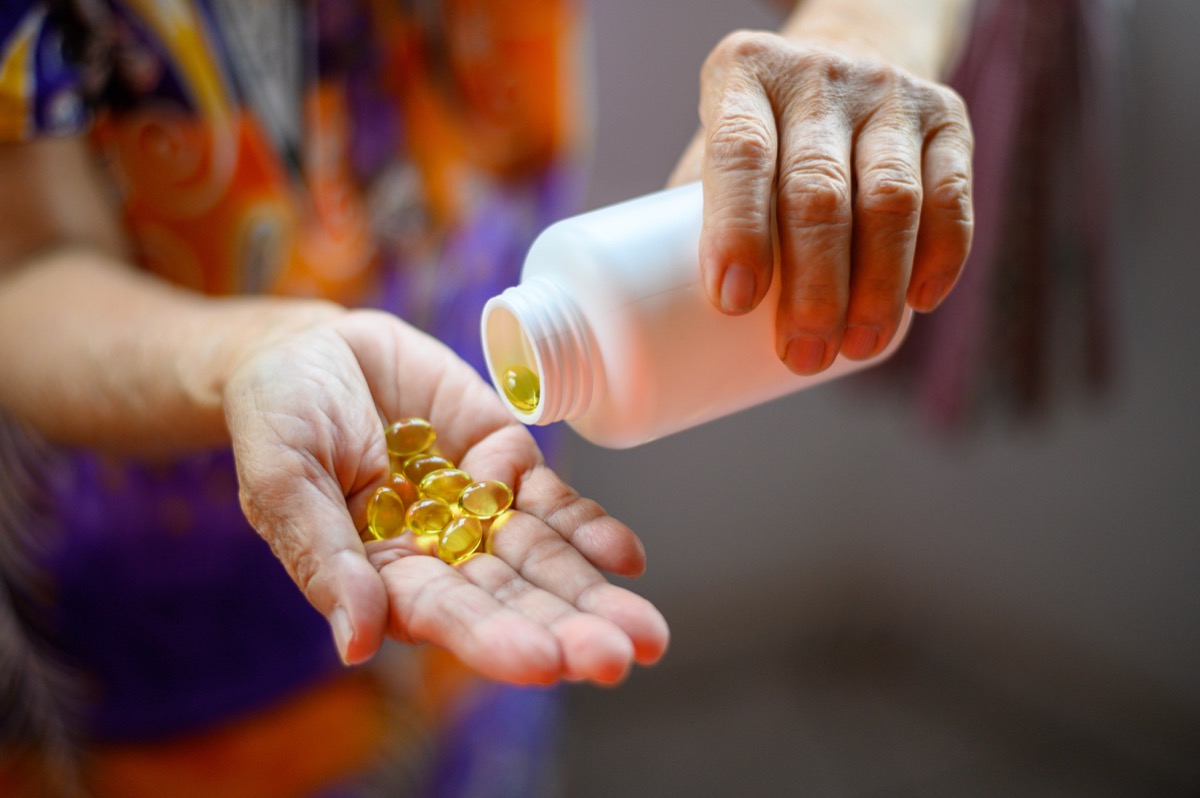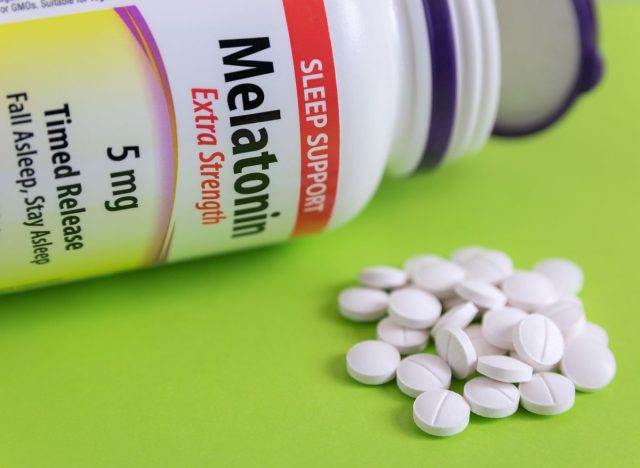The Number of Children Poisoned By This Product Grew By 500% In the Last Decade, CDC Says

Supplements for overall health and well-being are more popular than ever. In fact, in the U.S., 77% of adults regularly take dietary supplements, with consumption reaching an all-time high in 2019. Of those consumers, as many as 83% have children under the age of 18 in the household, according to a CRN Consumer Survey. Now, a new report by the Centers for Disease Control and Prevention (CDC) warns of the dangers these seemingly harmless products can cause in such households.
Because most adults don’t tend to think of vitamins and nutritional supplements as dangerous, they are often left on the counter or even bedside—right within reach of small children. Melatonin, in particular, is commonly left on the nightstand as a sleep aid.
But leaving melatonin unattended can lead to serious danger to children. During the past year, the supplement has led to over 52,000 calls to poison control centers, representing a six-fold increase in the last decade, according to the report published on June 3.

From 2012 to 2021, incidents of children ingesting the supplement by mistake increased by 530%. Additionally, melatonin sales rose 150% in the U.S. between 2016 and 2020, according to the study.
Melatonin is a hormone used to promote sleep. It has gained popularity as a safe way to treat delayed sleep and mild sleep disorders as it is considered generally safe and non-habit forming and is sold over the counter at most pharmacies. While the supplement is sold in both capsule and liquid form, it’s recently become popular in gummy form as well—which makes it especially attractive to small children.
Of the 52,000 poisoning cases that took place in the last year, most children who ingested the substance did not end up needing hospitalization. However, more than 4,000 were hospitalized and five children were placed on ventilators. Two children, ages 3 and 13 months, died at home after ingestion.
While the CDC believes the increased exposure is most likely due to the supplement becoming more widely popular, the study shows a link between the onset of the COVID-19 pandemic and calls to the health agency. Both “increased sleep disturbances during the pandemic” and more children at home due to school closures could have contributed to higher incidences of poisonings, according to the report.
The CDC recommends anyone who uses melatonin as a sleep aid to keep the dietary supplement in a safe storage space, regardless if they have children or not.









